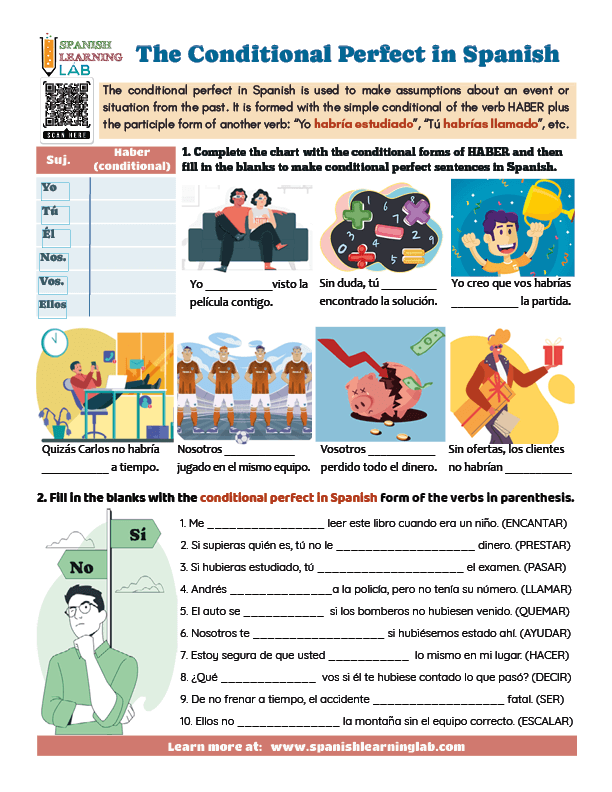¡Hola! Thanks for joining us. We have designed a great PDF worksheet to help you practice the grammar rules for the conditional perfect tense in Spanish, which is very useful to talk about hypothetical situations in the language. The exercises on this worksheet will definitely help you test your knowledge on this topic. Let’s start…
Directions:
Students could work individually or in pairs to solve the exercises on this worksheet.
Fristly, you will find a short explanation on the basics about this topic. The Spanish conditional perfect, called “el condicional compuesto” in the language, is used to make assumptions about an event or situation from the past. It is formed with the simple conditional of the verb HABER plus the participle form of another verb, for example:
- Yo habría estudiado… (I would have studied…)
- Nosotros habríamos escuchado… (We would have listened to…)
The verb HABER will be conjugated in conditional form, changing its ending from -AR/-ER-/-IR to ÍA/ÍAS and others depending on the subject. We will also need to be familiar with the Spanish participles of several verbs to use this tense properly. In order to solve the first exercise, students should write the conditional perfect conjugations for the verbs in the chart on the left. After that, they should take a look at the pictures and fill in the blanks with either HABER (conjugated) or a verb in past participle. For the second exercise, students must fill in the blanks with the correct conditional perfect in Spanish of the verbs in parentheses. Once again, students can check the correct form for verbs in this tense using a conjugation tool.
Worksheet information:
Level: Beginners
Skill: Grammar
Related lessons:
- Expressing Wishes in Spanish: Examples and Listening Practice
- Giving Advice and Making Suggestions in Spanish
- Forming the Past Participle in Spanish: examples & exercises

Solve it online!
Exercise No. 1
Drag and drop the conditional forms of HABER in Spanish or the verbs needed to complete these conditional sentences in Spanish.
Exercise No. 2
Fill in the blanks with the conditional perfect tense in Spanish of the verbs in parentheses.
